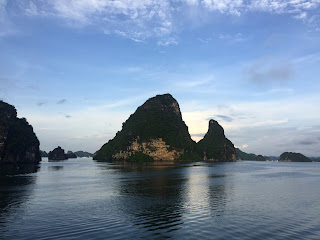A conversation is similar, but more spontaneous, not following specific outcomes in which an interview would have.
An interview works better when it has a conversational style, more spontaneous and also planned to get the right outcomes.
Michael Wolff interview
How do you know what clients you want to work with?
The how and what questions are fairly straightforward, but the why is always a little more complicated.
How has your creative process changed over the year?
- when started he had heroes and if his work resembled that of his heroes, he settled for it. He then found out about plagiarism and started creating things that weren't already there, he does not base it on experiences and does not plan what to do. He waits for something to happen.
What are the biggest mistakes that young designers make?
- Vanity. Can easily drift into an agreement system with other designers and not step away from the styles that are liked, there is a need for a different approach.
How do you keep your ideas fresh?
- muscle of curiosity, why is this like this?why? why?
Best piece of advice/revelation?
- Mother sent him to the post office with Gregory to post something and he didn't know why Gregory couldn't just go alone. He turned around and said why are you so selfish?'You are 10 years old and you let your mother make your bed' He realised now that people can see how you behave, similar to a brand. A brand is a behaviour and many companies do not understand how behaviour is seen, abuse of hierarchy often occurs within a company. Paid for not what they do, but who they are. Everything is seen.
'people will forget what you said, people will forget what you did, but people will never forget how you made them feel' - Maya Angelou
Preparation is key
The person is more likely to help if there is a reason for the interview, e.g. essay, project research ...
The interviewees will need contacting in advance and an indication on how long the interview will take, the purpose etc. will need to be confirmed.
You will need to consider how and where it will take place before approaching the potential interviewees.
Better 'face to face' as there is an element of empathy and understanding of how genuine the person's answer is.
An actual face to face interview will go better because the person has agreed to meet you, so will actually spend the time to talk to you in comparison to a questionnaire etc.
PLAN, PLAN, PLAN
Be attentive. Reading the next question, listen, keep track on time.
- What is your background in being Creative?
- How would you describe yourself as a creative while at College?
- In a few words, how would you sum up your College experience and was it positive?
- Why so (either way)
- What do you wish you had known before you left Uni?
- Who would you see as your main influencers and why?
- Since Uni, what experiences have you had that have been most memorable?
- Has it influenced your direction for the future?
- How?
- What gets you up in the morning?
- What do you see as your best achievement so far?
- What is your dream now?
EMPATHY:
Be sensitive to the feeling of the interviewee and also manage the silences.
prompts
- silence
- repeat the question
- repeat the last few words spoken by the interviewee
- offer some examples
probes
- ask for an example
- ask for clarification
- ask for more details
checks
- summarise the interviewee's thoughts
be non-judgemental
The formalities:
- Talk about the aims of the interview/intentions
- confirm that you are okay to record the interview, this builds trust
- prepare the recording equipment prior
- the first question should put the interviewee at ease, be something that they will find easy to talk about and should not be difficult for them to talk about
- keep an eye on the time
- remember to thank the interviewee for giving up their precious time
- transcribing takes a long time, so be mindful of this when you consider interview length
- never publish anything without them agreeing to it
Interview examples












